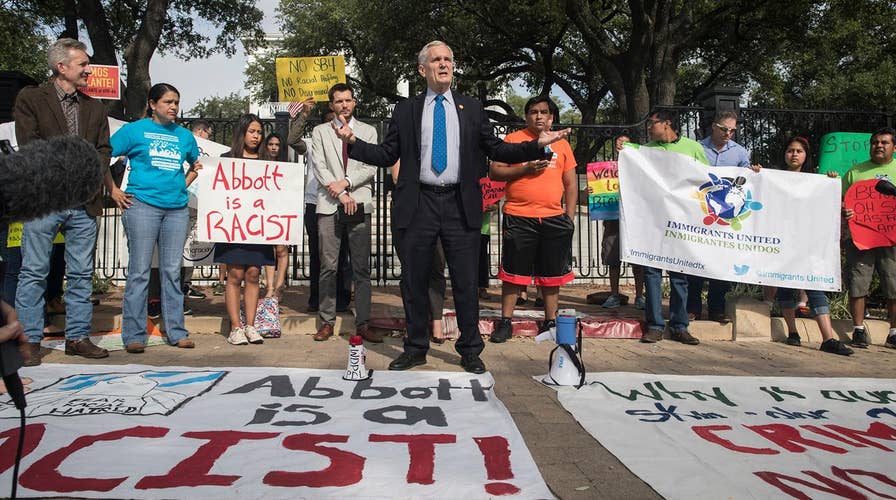BOISE, Idaho – A rural town in south-central Idaho that's become a hotbed of refugee support and opposition has opted to take a softer stance in affirming its role as a welcoming city rather than adopt policies defying U.S. immigration officials.
The seven-member Twin Falls City Council approved on Monday a declaration of a "neighborly community" after spending weeks listening to mixed public testimony. Two councilors voted against the measure.
The decision comes at a time when the agricultural-dominant region has become a microcosm of the national debate over refugee resettlement, with far-right bloggers and conspiracy theorists focused on the town to blast warnings about often unfounded risks of immigration. Meanwhile, advocates have been forced to step up their defense that immigrants and refugees bring valuable benefits to a community.
The council's resolution is similar to multiple cities across the United States also outlining their already existing commitment to ensuring residents feel welcome and safe, while stopping short of declaring themselves a sanctuary.
ADDITIONAL VETTING ALREADY HAPPENING, DHS OFFICALS SAY
More than 90 cities and counties have adopted some version of a welcoming city resolution, according to Welcome America, a nonprofit organization that encourages municipalities to join its network. This includes Salt Lake City, Utah, Los Angeles and Denver.
"I will never vote for Twin Falls to be a sanctuary city. That is my guarantee to anybody in the city of Twin Falls who thinks that will happen," said Councilman Greg Lanting during Monday's meeting before voting for the resolution. "That will not happen."
The term "sanctuary city" has no legal definition and varies in application, but it generally refers to jurisdictions that do not cooperate with federal immigration laws. The Trump administration has warned that sanctuary cities could lose federal money for refusing to cooperate with immigration authorities.
Several big cities, such as New York and Chicago, have formal sanctuary policies in place, but Idaho has none. Instead, at least three Idaho cities, including Boise and Ketchum, have signed off various "welcoming city" resolutions since January. The small town of Jerome, located just outside of Twin Falls, is researching language for a possible resolution after being urged by the Idaho Dairymen's Association, whose members want to protect migrant workers.
Unlike sanctuary city policies, such resolutions do not change city practices and do not carry any enforcement requirements. For example, the Twin Falls resolution was based on documents already in city code, Mayor Shawn Barigar said.
"It's important that we state out loud that we all have a responsibility to welcome our neighbors," Barigar said.
Boise — one of two refugee resettlement centers in Idaho — unanimously approved its welcoming city resolution in January when the Idaho Statehouse was considering legislation to ban sanctuary cities. The bill died without receiving a full hearing.
"It's so easy to be negative, it's harder to find the positive," said Democratic state Sen. Maryanne Jordan, who is also a city councilwoman in Boise. "But people appreciate these efforts, especially in a time where there's a lot of fear. We need to articulate what we are doing and how we're supporting our community."









































